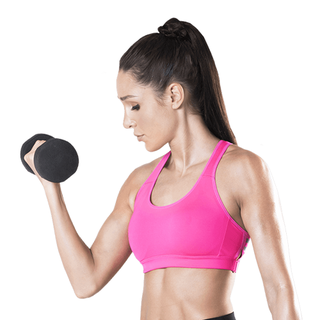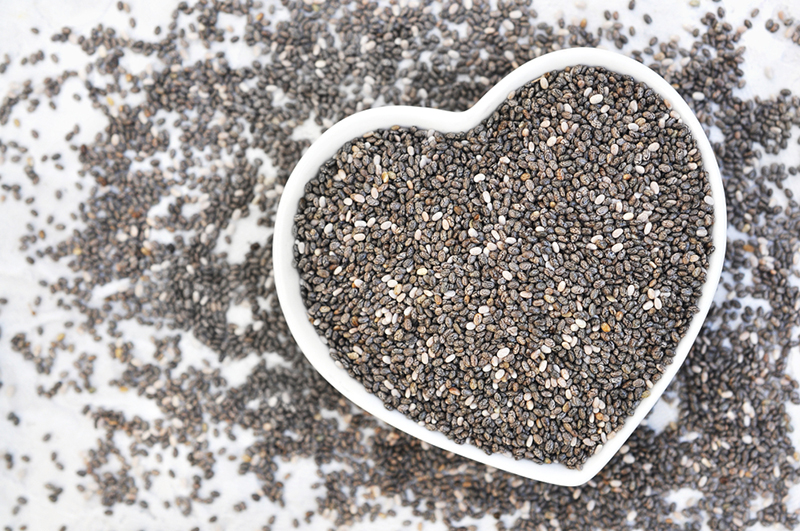Chia Seeds: Nutrition, Health Benefits And Recipe Tips

October 21, 2018

Chia seeds might be found almost everywhere these days and known as a superfood but have you wondered what actually makes them so good for you?
In this blog, I’m talking about some of the benefits of chia seeds. I’ve got some easy ways you can pack these small but mighty seeds into your day!
Jump to:
- Chia seed benefits
- Source of omega-3
- High in fibre
- Contain protein
- Rich in minerals
- Chia seed recipes
- Chia eggs
- Chia pudding
- Smoothies
- Chia popsicles
- Chia cookies
Chia seed benefits
Chia seeds are a superfood — they are a nutritional powerhouse that offers many health benefits. When you add them to a well-balanced diet, you can provide your body with the nutrients it needs to perform at its best.
You might be wondering how chia seeds nutrition makes them a superfood — let me break it down for you!

Chia seeds contain omega-3 fatty acids
Omega-3 fatty acids have been linked to better heart health, helping to increase the levels of good cholesterol in your body. These fatty acids are important for our health and your body can’t produce them — so you have to get them from food.
Chia seeds can be helpful for increasing your intake of omega-3 fatty acid, without having to rely on salmon all the time! Just a note on this — the omega-3 is not as readily absorbed from chia as it is from marine sources.
Omega 3s also provide anti-inflammatory properties, so adding chia seeds to your smoothies is a great way to give your immune system a helping hand.
Chia seeds are a source of fibre
It is an underestimated nutrient but fibre is SO important for a healthy digestive system. With so many people struggling with gut health issues, it is a good time to take a look at how much fibre you are actually consuming.
Thanks to their high fibre content, another of chia seeds benefits is they can also help with satiety (the feeling of fullness after eating).
Chia seeds are a source of protein
It might sound strange but it is true! Per gram, chia seeds contain six times more protein than kidney beans, making them a fantastic plant-based protein source.
Not just a source of protein, chia seeds provide your body with all of the essential amino acids.
Chia seeds contain a number of minerals
In addition to protein and fibre, chia seeds are a source of calcium and phosphorus, minerals which are important for bone health.
Chia seed recipes

Sprinkling some chia seeds into an omelette, over the top of salads or a bowl of oats is a great way to increase your nutrient intake. Here are a couple more ways to use chia seeds:
Chia seeds as an egg replacement
For an egg substitute in vegan recipes, you can make a chia ‘egg’!
To make a chia egg:
Combine 1 tbsp chia seeds with 2 ½ tbsp of water. Stir to combine and leave them to sit for 5 minutes so the mixture thickens.
Chia eggs work best in muffins, cookies and pancakes.
Chia puddings

Chia seeds have a mild taste but absorb up to 10 times their weight in liquid, they make delicious puddings!
Try out my layered chocolate raspberry chia pudding for a sweet treat that packs a punch with fibre too.
Smoothies

Add some soaked chia seeds to your smoothie for some extra protein and an extra-filling drink!
This healthy strawberry banana breakfast smoothie is simple and delicious.
Chia popsicles
Try adding a tablespoon of chia seeds to a simple popsicle mixture! Not only is it super simple to make them, adding chia increases the nutritional value of refreshing popsicles.
I love to make healthy popsicles with mango but you could also use strawberries or kiwifruit!
Chia cookies

Cookies with added protein but no preservatives? Sounds good to me!
My chia seed cookies use apple and banana for sweetness and they are just perfect with a cup of tea!
So many ways to enjoy chia seeds and their benefits!
If you haven’t already added chia seeds to your pantry staples, I am sure you will want to after reading this!
There are so many benefits of chia seeds and they are so simple to add to your snacks and meals. What’s your favourite way to use them?
Love, Kayla xx